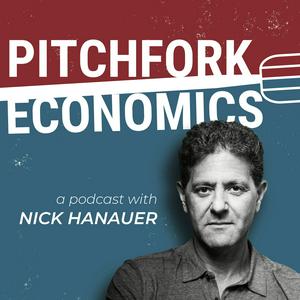Can we build an economy that delivers abundance without abandoning democratic accountability and economic equity?
Recorded live at Democracy Journal’s “Can’t We All Just Get Along?” conference, this episode features a wide-ranging panel discussion on one of the most consequential debates shaping today’s political economy: whether abundance and social democracy are in tension—or whether they’re mutually reinforcing.
Moderated by Ed Luce of the Financial Times, the panel brings together Baillee Brown (Inclusive Abundance), Jerusalem Demsas (The Argument), Mike Konczal (Economic Security Project), and Sandeep Vaheesan (Open Markets Institute) to wrestle with what it actually takes to deliver housing, clean energy, and public goods at scale—without ceding power to concentrated markets or hollowing out democratic governance.
At a moment of deep political discontent and institutional distrust, this conversation helps clarify the real choices facing policymakers—and why getting this balance right is essential to rebuilding public faith in government.
Ed Luce (moderator) is the U.S. national editor and a columnist at the Financial Times, where he writes on American politics, democracy, and global political economy.
Baillee Brown (panelist) is a policy advocate and the founder of Inclusive Abundance, where she works with lawmakers to advance a pro-building, outcomes-focused approach to delivering housing, clean energy, and public goods.
Jerusalem Demsas (panelist) is founder and Editor in Chief of The Argument a publication and podcast covering housing, economic policy, and the politics of affordability.
Mike Konczal (panelist) is the Senior Director of Policy and Research at the Economic Security Project, where he focuses on inequality, housing, industrial policy, and the political economy of growth.
Sandeep Vaheesan (panelist) is the legal director at the Open Markets Institute and a leading voice on antitrust, corporate power, and the role of public authority in building a more equitable economy.
Website: http://pitchforkeconomics.com
Facebook: Pitchfork Economics Podcast
Bluesky: @pitchforkeconomics.bsky.social
Instagram: @pitchforkeconomics
Threads: pitchforkeconomics
TikTok: @pitchfork_econ
YouTube: @pitchforkeconomics
LinkedIn: Pitchfork Economics
Twitter: @PitchforkEcon, @NickHanauer
Substack: The Pitch


